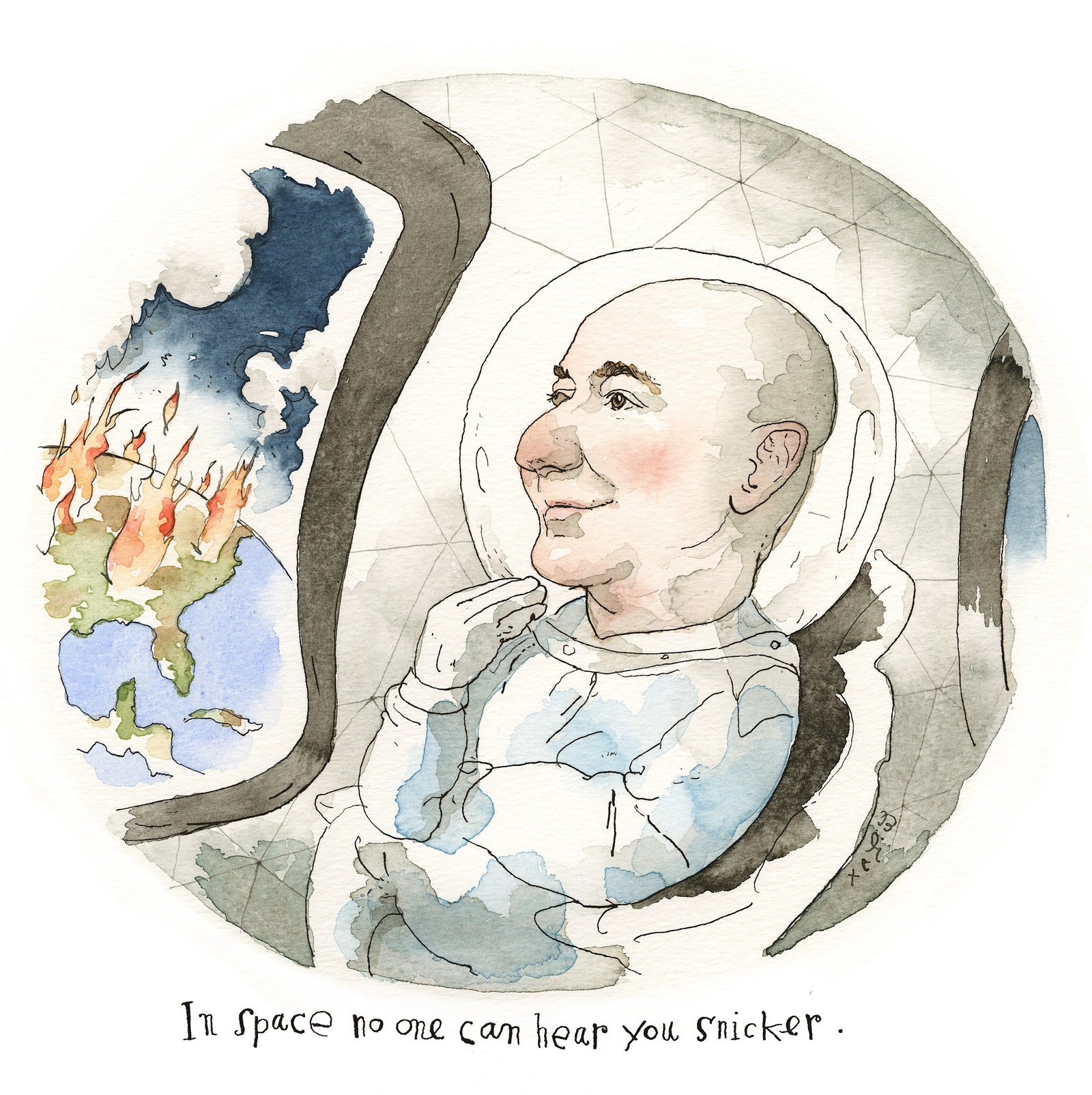Billionaire Bias Silences Prolific Post Cartoonist
A renowned cartoonist, recognized for her work at the Washington Post and a recipient of the prestigious Pulitzer Prize, recently announced her resignation from the publication. This sudden departure stemmed from the organization’s decision not to feature her latest cartoon offering, one which mocked Jeff Bezos, the billionaire owner of the said newspaper. The cartoon, which exemplified the artist’s penchant for satirical societal commentary, portrayed Bezos and other business magnates bowing down before a likeness of then President-elect Donald Trump. The cartoonist announced her resignation publicly, stating that this refusal to run her work was a departure from the press freedom she had always cherished.
In the unnegotiable piece of art, Bezos along with the founder of Meta, Mark Zuckerberg, and OpenAI’s head honcho, Sam Altman, were illustrated kneeling in deference before a structure of Trump, their arms outstretched holding bags filled with money. One can only surmise that it alludes to their alleged tendency to appease the then-election favorite with their wealth. Adding an amusing twist to the satire, the universally recognized cartoon character, Mickey Mouse, was also depicted prostrated in the artwork.
Voicing her discontent, the talented artist opined that never in her long association with the newspaper since 2008 had she been censored based on her choice of subjects. The decision to reject her work, she added, was a novel experience for her. Her pen had always been free to critique whoever she saw fit without organizational oversight. Until that moment.
She stated that her rejected work aimed to highlight the worrying tendency of billionaire tech and media moguls trying to win favor from President-elect Trump. The cartoon was a sharp commentary on these powerful men who regularly engage with the government on lucrative contracts, and have a vested interest in seeing restrictive regulations removed.
However, the paper’s editorial page editor offered a different view. He proclaimed that the cartoon wasn’t run because it was repetitive and resembled an already slated piece. Hinting at the cartoonist’s conjectures, he defended the editorial judgment as not necessarily indicative of an oppressive or corrupt influence.
The editor insisted his decision was not influenced by the cartoon’s content but was simply a matter of avoiding content duplication. He clarified that they had already published a column related to the cartoon’s topic, with another satirical piece on the same lines already awaiting publication.
This incident did not mark the first time that the lady cartoonist faced opposition from the newspaper’s authorities. In 2015, the organization had retracted one of her creations which portrayed the young daughters of Texas Senator Ted Cruz as monkeys. According to the organization, the move was adhering to their editorial policy of refraining from involving children in such commentaries.
Recent reports showed that the enigmatic Bezos had announced that his company would make a significant contribution to the inauguration fund. He also regarded the re-election triumph of the President-elect as a remarkable political turnaround. As if this were not enough, the billionaire even shared a meal with him at Florida’s presidential residence, setting tongues wagging about his allegiance.
In an expected turn of events that unfolded weeks before the November presidential election, the newspaper faced the ire of liberal factions. The disapproval followed the intervention of Bezos to stop the publication’s editorial board from endorsing the Vice President. You’d think that as a reputed publication platform, they would make a more reasonable decision, but the narrative was controlled by one man and his whims.
In consequence of this, the newspaper reportedly witnessed a significant dip in its subscription count, losing more than 250,000 subscribers who took offense to this supression of an escolatory practice. A political move that arguably dismissed the traditional practices of unbiased publishing, cementing the owner’s influence.
In a more surprising development, The Los Angeles Times, another reputed media outlet, also trod a similar path. The owner, who was also a character in the controversial shelved cartoon, decided not to publish the newspaper’s endorsement in the month of October. Yet another victim of the increasing trend of media manipulation and control by powerful personalities.
Wrapping up, it is sad to see a distinguished cartoonist leave an establishment where she has spent a significant period of her career. But when editorial freedom is encroached upon to serve individual motives, one cannot help but respect her courageous decision. In these testing times, it serves as a stark reminder of the changing power dynamics in today’s media landscape.
At the heart of editorial freedom and democracy lies the power to critique and satirize. But when that power is stifled by the very institutions meant to uphold it, it indeed is a precarious state of affairs. Here’s to hoping that the democratic essence of journalism thrives and the power remains with the press and not individuals with deep pockets.

